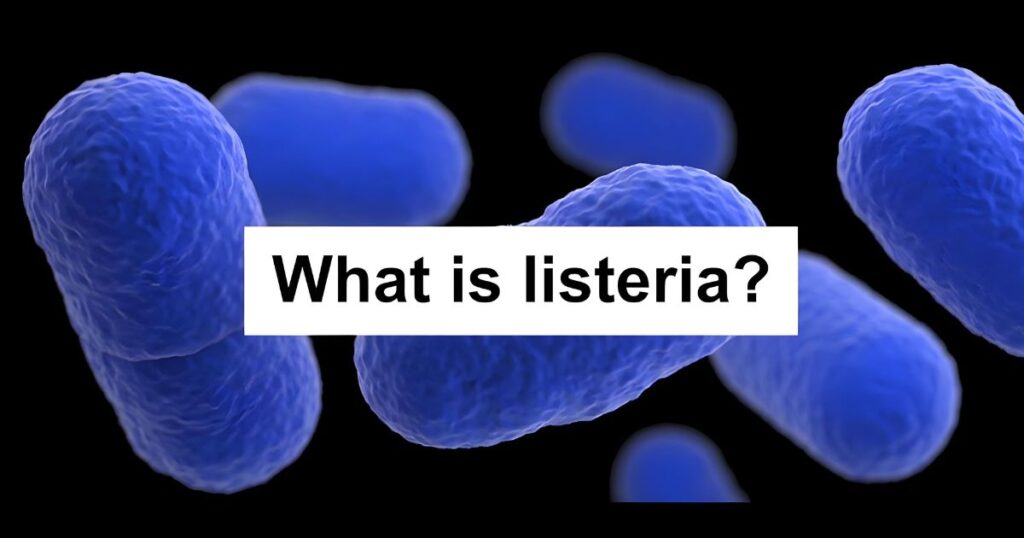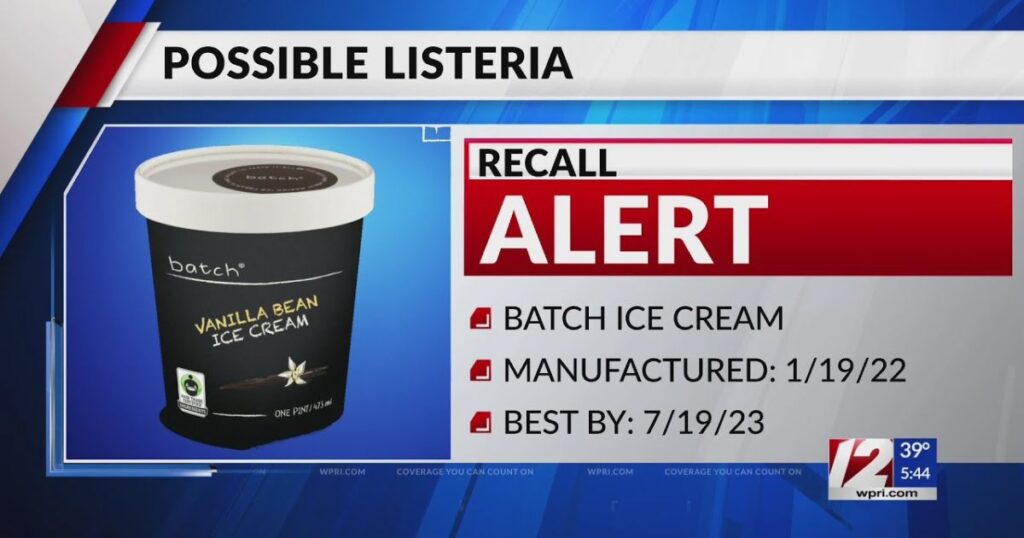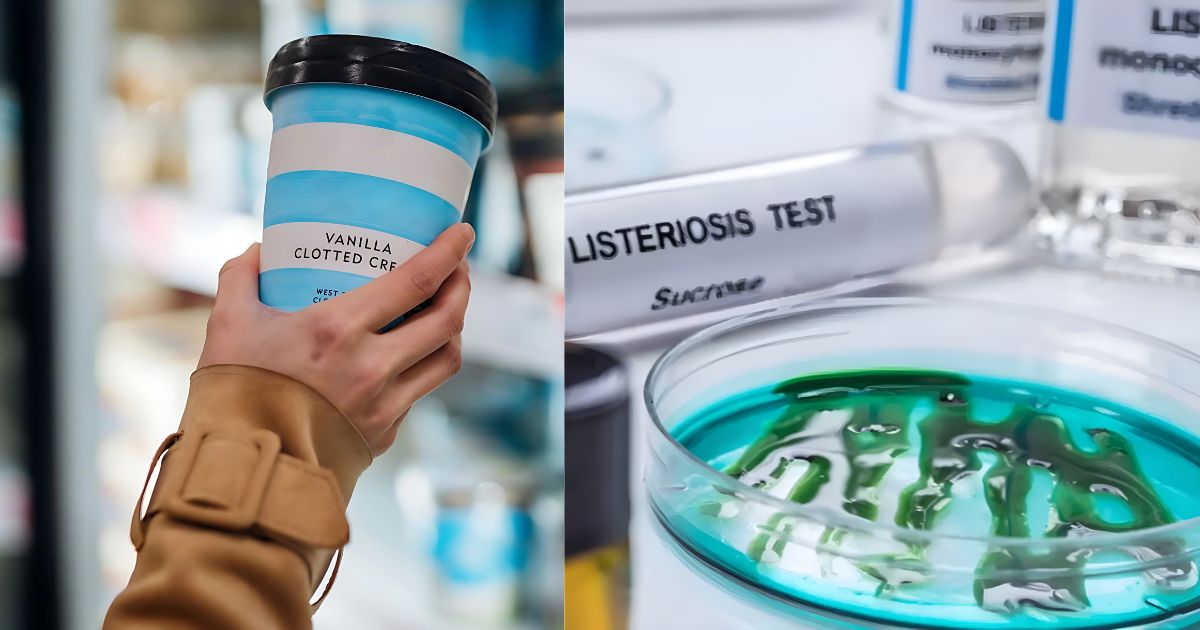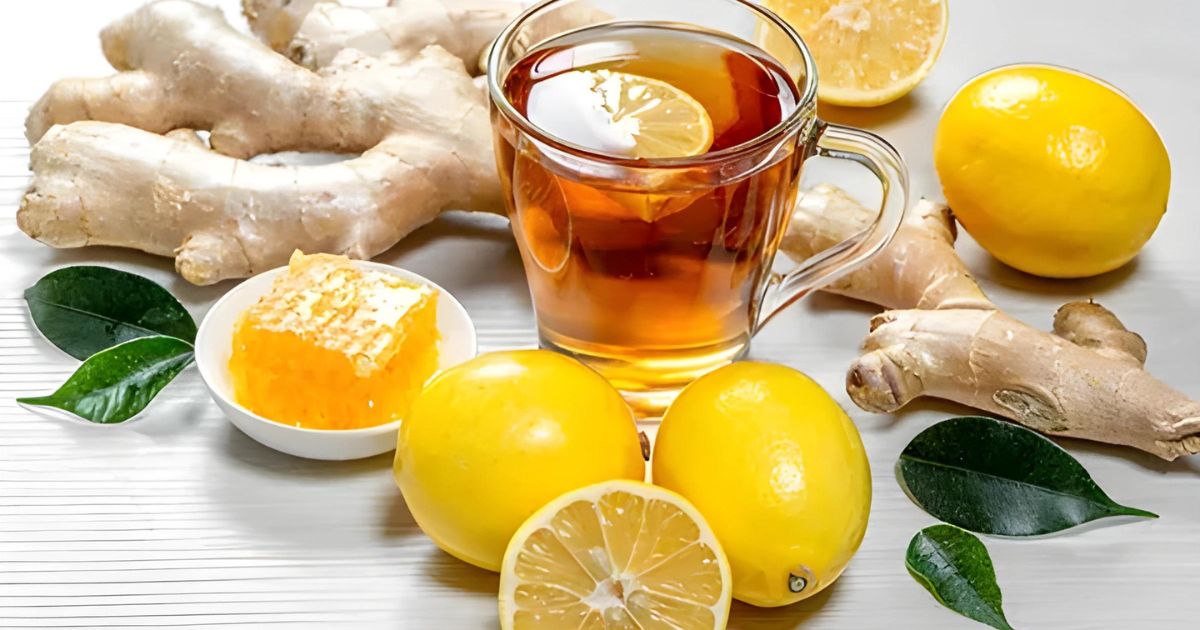In June 2024, the U.S. Food and Drug Administration (FDA) announced a nationwide ice cream recall due to potential listeria contamination. This event impacted many ice cream products manufactured by Totally Cool Inc., a Maryland-based company. The recall highlights the importance of food safety and consumer awareness regarding Listeria and its potential health risks.
Read More: Digital News Planet
Ice Cream Recalls Listeria: The Scope of the Ice Cream Recalls
The recall involved nearly 70 ice cream products across 13 different brands. Popular names like Jeni’s, Friendly’s, Hershey’s, and Chipwich were affected. The recalled products included a variety of formats, ranging from pints of ice cream and sorbet to ice cream cakes, cones, and sandwiches.
Thankfully, no illnesses were reported at the time of the recall. However, the seriousness of listeria contamination prompted immediate action to prevent potential health hazards.
What is Listeria and Why is it Concerning?
Listeria monocytogenes, commonly referred to as simply listeria, is a type of bacteria that can cause foodborne illness, also known as listeriosis.

While generally healthy individuals may experience short-term symptoms like fever, headache, nausea, and diarrhea, listeria infection can be hazardous for:
- Young children
- Pregnant women (listeria can cause miscarriage and stillbirth)
- Elderly adults
- People with weakened immune systems
Listeriosis can be a serious illness, leading to hospitalization and even death. This is why the FDA takes swift action whenever there’s a potential risk of listeria contamination in food products.
How Did the Listeria Contamination Happen?
The exact cause of listeria contamination in the recalled ice cream products remains under investigation by Totally Cool Inc. However, listeria can enter food during processing, packaging, or even storage if proper sanitation protocols are not followed.
Here are some potential sources of listeria contamination in food manufacturing:
- Contaminated ingredients
- Improper cleaning and sanitation of equipment
- Cross-contamination from other products
The FDA routinely conducts inspections of food manufacturing facilities to ensure they adhere to strict safety guidelines. In this case, the presence of listeria was likely detected during an FDA sampling test, prompting the recall.
Listeriosis Symptoms:
If you suspect you or someone you know may have been exposed to listeria, be aware of the following symptoms:
- Fever
- Muscle aches
- Severe headache
- Stiffness
- Nausea
- Vomiting
- Diarrhea
These symptoms can appear anywhere from a few days to several weeks after exposure to listeria. If you experience these symptoms, it’s crucial to seek medical attention immediately.

Listeria Prevention:
While the recent ice cream recall highlights a potential risk, listeria contamination can occur in various food products. Here are some additional ways to prevent listeria infection:
- Cook raw meat to a safe internal temperature.
- Wash fruits and vegetables thoroughly before eating.
Important Information for Consumers
If you’re concerned about the ice cream recall, here’s what you need to do:
- Check Your Freezer: Look for the recalled ice cream products in your freezer. A complete list of recalled products, including brand names, product names, UPCs, and best-by dates, is available on the FDA website https://www.fda.gov/safety/recalls-market-withdrawals-safety-alerts
- Discard or Return Recalled Products: If you have any of the recalled ice cream products, do not consume them. Throw them away immediately or return them to the store where you purchased them for a full refund.
- Clean and Sanitize Your Freezer: To minimize the risk of any remaining listeria bacteria, thoroughly clean and sanitize your freezer after removing the recalled products.
Additional Tips for Food Safety
Here are some general food safety tips to keep in mind when handling and consuming ice cream, or any food product for that matter:
- Always follow safe food handling practices such as washing your hands thoroughly before and after handling food.
- Maintain proper hygiene in your kitchen, including cleaning and sanitizing surfaces and utensils regularly.
- Practice proper storage: Keep ice cream and other frozen treats frozen at the recommended temperature (typically 0°F or below).
- Consume food before the expiration date.
- Be aware of recall notices: Stay informed about food recalls by checking the FDA website or signing up for email alerts.
Focus on Regional Concerns: Listeria and Ice Cream Recalls
While the recent ice cream recall due to listeria contamination originated in the United States, it’s important to be aware of potential risks and resources in other regions as well. Here’s a breakdown of information for some specific areas:
Ice Cream Recalls Listeria UK
As of June 29, 2024, there haven’t been any major ice cream recalls linked to listeria reported in the UK. However, it’s always wise to stay informed.

Here are some resources for checking UK food recalls:
- Food Standards Agency (FSA): The FSA is the government agency responsible for food safety in the UK. They maintain a database of food recalls, including any that might involve ice cream: https://www.food.gov.uk/about-us/recalls-and-alerts
- Public Health England (PHE): PHE provides advice and information on various public health issues, including foodborne illnesses. You can find information about listeria on their website: https://www.gov.uk/government/collections/listeria-guidance-data-and-analysis
Vanilla Ice Cream Recalls Listeria
The recent ice cream recall in the US wasn’t specifically limited to vanilla ice cream. Various flavors and formats of ice cream products were affected. However, if you’re concerned about a specific brand or product, you can always check the official recall list (see below) and search by brand name or flavor.
Ice Cream Recalls Listeria Australia
Similar to the UK, there haven’t been any recent major ice cream recalls linked to listeria reported in Australia. Here are some resources for checking Australian food recalls:
- Food Standards Australia New Zealand (FSANZ): FSANZ is the government agency responsible for food safety in Australia and New Zealand. They maintain a database of food recalls, including any that might involve ice cream: https://www.foodstandards.gov.au/food-recalls
- Department of Health (Australia): The Department of Health provides information on various health topics, including foodborne illnesses. You can find information about listeriosis on their website: https://www.health.gov.au/diseases/listeriosis
Ice Cream Recalls Listeria Canada
The Canadian Food Inspection Agency (CFIA) is responsible for food safety in Canada. They maintain a list of food recalls, which you can search for any potential ice cream recalls linked to listeria: https://recalls-rappels.canada.ca/en
Ice Cream Recall List / Ice Cream Recall Listeria List / Ice Cream Recall 2024 List
These terms all point towards the same information: a list of recalled ice cream products. Here are the best resources to find this information:
- FDA Recalls and Market Withdrawals: This is the official website of the US Food and Drug Administration (FDA) where you can find a list of all current food recalls, including any that involve ice cream: https://www.fda.gov/about-fda/office-global-policy-and-strategy/fda-recalls-market-withdrawals-safety-information
- USDA Recalls and Withdrawals: The United States Department of Agriculture (USDA) also maintains a list of food recalls, although they primarily focus on meat, poultry, and egg products: https://www.fsis.usda.gov/recalls
Listeriosis Ice Cream
This term combines the two main concerns of this topic. If you’re searching for information about listeria contamination in ice cream, the resources mentioned above (FDA Recalls, Public Health England, etc.) will be your best starting point. They can provide details about specific outbreaks, preventative measures, and information on what to do if you suspect you’ve consumed contaminated ice cream.
Remember, even though the recent ice cream recall originated in the US, it’s crucial to stay informed about potential risks and resources in your specific region. By using the provided resources, you can keep yourself and your family safe from listeria and other foodborne illnesses.
FAQs:
1: What ice cream brands have listeria?
Unfortunately, it’s not always helpful to focus on specific brands when it comes to ice cream recalls and listeria. Recalls can involve multiple brands manufactured by a single company, and the situation can change over time.
Here’s what you can do to stay informed:
- Check the official FDA recall list for the latest updates: https://www.fda.gov/safety/recalls-market-withdrawals-safety-alerts
- You can also sign up for email alerts from the FDA to be notified of any new recalls.
2: What causes listeria in ice cream?
Listerिया contamination in ice cream can happen at various points during processing, packaging, or even storage if proper sanitation protocols aren’t followed. Here are some potential sources:
- Contaminated ingredients
- Improper cleaning and sanitation of equipment
- Cross-contamination from other products in the manufacturing facility
3: What is listeria poisoning?
Listeriosis is the foodborne illness caused by the bacteria Listeria monocytogenes. While most healthy adults experience short-term symptoms like fever, headache, and nausea, listeria infection can be severe for vulnerable populations like pregnant women, young children, elderly adults, and people with weakened immune systems.
4: What ice cream is recalled in 2024?
As of June 29, 2024, there aren’t any ongoing major ice cream recalls linked to listeria in the US. However, you can always check the FDA website for the latest information (link above).
5: Which country consumes the most ice cream every year?
New Zealand consistently ranks near the top in global ice cream consumption per capita. Other countries with high ice cream consumption include the United States, Australia, and some European nations.





